In Turkey today, it’s dangerous to speak your mind.
As Turkey approaches two years of a state of emergency, human rights defenders in the country are living in a constant climate of fear. They each either have been detained, prosecuted or threatened, or know many others who have been.
They are careful about what they say, write or tweet. They have small bags ready in case they get the dawn knock on their door, the police coming to take them away.
Their organizations also feel the squeeze, some have even been summarily shut down, leaving swathes of people in need of their support also voiceless.
And none of this is accidental. It’s a deliberate attempt to dismantle independent civil society.
This is why we need to talk about Turkey.
We need to talk about how a nationwide crackdown has resulted in mass arrests and dismissals, the hollowing out of the legal system and the silencing of dissenting voices through threats, harassment, prosecutions and imprisonment.
The aim is to maintain the climate of fear … When you are in police detention, you are very scared for your family. We are all scared.
Osman İşçi, human rights defender
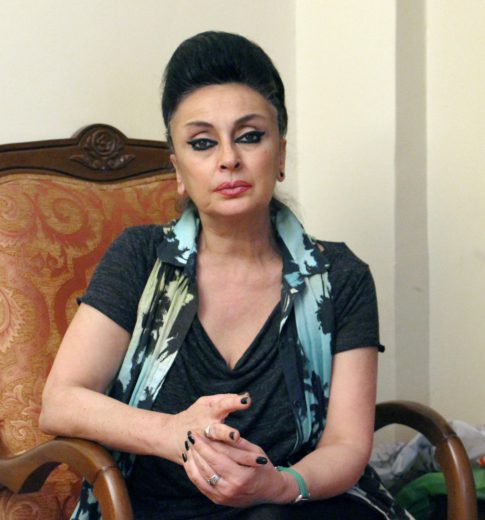
A climate of fear and intimidation
Since the July 2016 failed coup attempt, more than 100,000 people have faced criminal investigations and possible prosecution, and more than 50,000 people have been imprisoned pending trial. Turkey is also the biggest jailer of journalists, with more than 120 finding themselves behind bars, simply for doing their job.
Those who continue to speak out and stand up for human rights in Turkey are paying a heavy price.
Being exposed to smear campaigns on social media and in pro-government media is often just the beginning. At any moment they might be arrested and find themselves in prison for months on baseless charges. This climate of fear leads to self-censorship. Activists start hesitating to raise their voices, knowing they could be thrown in jail for what they say.
As human rights lawyer Eren Keskin told Amnesty: “I try to express my views freely but I am also acutely aware of thinking twice before speaking or writing.”
She is currently facing over 140 separate prosecutions for articles published when she was symbolic editor-in-chief of the newspaper Özgür Gündem.
Join the campaign and speak out for people in Turkey
Back in 2016, the Turkish government established a ‘state of emergency’. It was meant to protect the people after a bloody coup attempt – but instead, it gave the government the ability to rule the country with dangerous, unchecked power.
People in Turkey are now living in a climate of fear and intimidation, where the government that should be protecting them is violating their rights.
The government uses their power to silence and jail human rights defenders, journalists, lawyers and academics, including people like the Honorary Chair of Amnesty Turkey Taner Kılıç who has been in jail since June 2017. This is a deliberate tactic, designed to intimidate and silence those who question the government’s actions.
But millions of people just like you are speaking out for the people in Turkey and will not be silenced: together our voices are strong, and we can demand an end to the government’s climate of fear.
Hundreds of NGOs have been permanently closed, depriving those that need them of vital support – among them are LGBTI people, women survivors of violence, children and refugees. The legal system is broken. People don’t trust the courts anymore, because they are not free and independent.
People in Turkey must have the freedom to speak out, discuss issues that matter to them, and to defend human rights without fear. They must be able to live in a society that is fair and safe for everyone.
Sign up to support this campaign and we will take it to world leaders, to show them that they cannot keep doing ‘business as usual’ with Turkey. Together we can show the Turkish government that the world is watching, and show human rights defenders in the country that they are not alone.
Add your voice and together, let’s make some noise.
Unfair prosecutions
Anti-terrorism laws are used to criminalize and imprison those defending human rights or expressing dissenting opinions, in an attempt to silence them.
One of them is refugee rights lawyer Taner Kılıç, founding member and Honorary Chair of Amnesty International Turkey. He was arrested on the morning of 6 June 2017 and sent to prison three days later.
The main accusation against him is that he allegedly downloaded and used the encrypted messaging app ByLock, which the authorities say was used by those who carried out the attempted coup. However, four separate expert reports show that Taner has never downloaded or used the app.
More shockingly, almost a year on, the prosecution has not provided any evidence to support their accusation. And in any case, the presence of a messaging app on a phone cannot be considered as evidence of a “terrorism” offence.
Taner Kılıç remains in prison, waiting for his next hearing on 21 June.
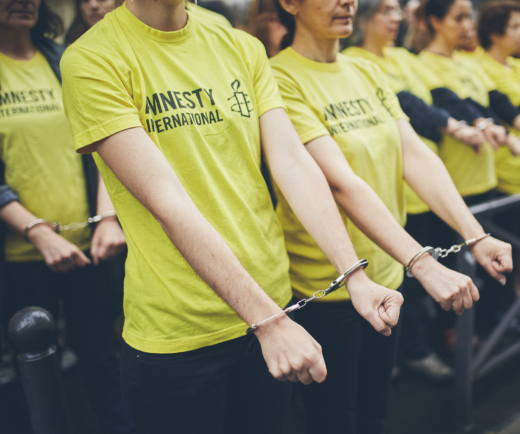
Crackdown under the state of emergency
Since the failed coup attempt in July, 2016, Turkey has renewed its state of emergency seven times. The state of emergency essentially enables the government to rule without checks and balances, by issuing executive decrees.
These executive decrees have the force of law, and are subject to almost no scrutiny by Parliament or the courts.
Basically, the government can do what they want.
Unfortunately, they choose to violate the rights of people in Turkey, rather than protect them. The authorities are using the excuse of ‘national security’ to trample on hard-won rights, such as the freedoms of expression, peaceful protest and association.
The figures below sadly illustrate the deteriorating human rights situation in Turkey after the failed coup attempt.
The crackdown in numbers

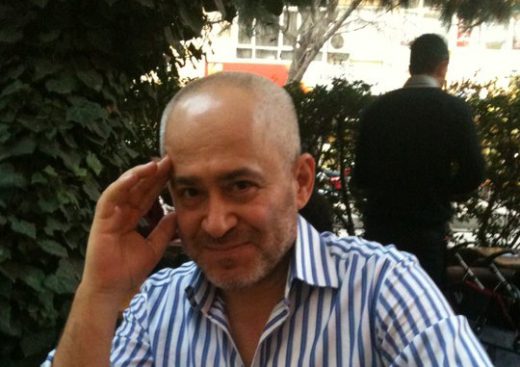
A broken legal system
Today, fair trials seem like an increasingly distant dream in Turkey. It is estimated that several hundred lawyers are facing criminal proceedings under the post-coup crackdown. This is part of the on-going attacks on the judiciary system, where also judges, prosecutors and other state officials have been targeted.
Human rights defender, journalist and lawyer Orhan Kemal Cengiz knows this too well.
He was detained in July 2016 and subsequently charged with “attempting to overthrow the constitutional order”, “attempting to overthrow the Parliament and the government or to prevent them from carrying out their work” and “membership of an armed terrorist organization”. These are charges punishable by life imprisonment without the possibility of parole.
Cengiz told Amnesty that after the Constitutional Court decision on Mehmet Altan, one of his clients, he wrote a tweet welcoming the outcome: “I immediately received messages from people saying ‘what are you thinking? You are drawing attention to yourself. They will put you in jail.”
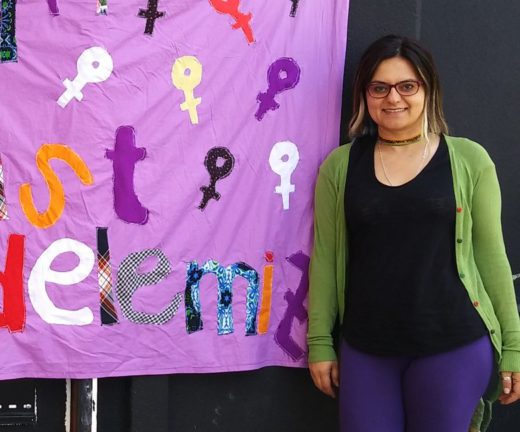
Organisations shut down
When human rights defenders are targeted, imprisoned, gagged and silenced, the consequences are devastating not just for them. Those who are at greatest risk of human rights violations, such as LGBTI people, survivors of gender-based violence and children, are deprived of vital support in their struggle to defend their rights.
The Van Women’s Association (VAKAD) was a vibrant organization that worked to prevent violence against women and girls in eastern Turkey. They were closed down under executive decree on 22 November 2016. Today, no one is doing this vital life-saving work in the region.
There is now a huge gap in the provision of advice and support to survivors. It breaks my heart.
Zozan Özgökçe
Today most LGBTI+ people in Turkey are living in more fear than ever before.
LGBTI+ activist who wishes to remain anonymous
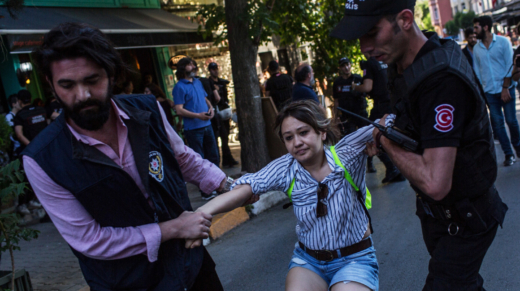
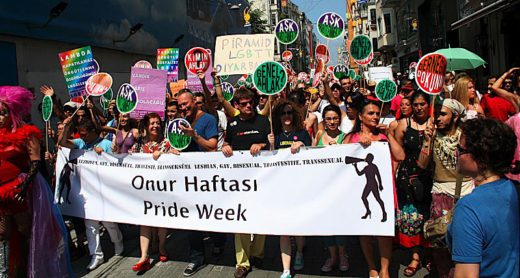
LGBTI people fighting backslide
The impact of the repression on civil society is immense, including for the LGBTI community. Once vibrant and expanding LGBTI organisations feel they are being pushed underground once again.
They have reported a sharp increase in campaigns of intimidation and harassment, targeting individuals and planned events.
With the overall crackdown on freedom of expression, LGBTI+ people feel that the spaces for them to be themselves are drastically shrinking.
LGBTI+ activist
The pride parade in Istanbul was once a fantastic display of confidence and diversity, with a growing participation year on year. However, it’s been banned for the last three years. In Ankara, all LGBTI events have been banned since November 2017.
Report: “Weathering the storm: Defending human rights in Turkey’s climate of fear”

Defending human rights in the southeast of Turkey
Speaking out for the human rights of Kurdish people has always been a perilous enterprise in Turkey. In today’s climate of fear, human rights defenders in the southeast of Turkey are feeling the chilling effects of the crackdown very acutely.
The few remaining independent voices advocating for human rights in the region live with an even more severe, ever-present threat of detention and prosecution.
Human rights defender and journalist Nurcan Baysal was briefly detained and questioned in January 2018 about five tweets about Turkey’s military operation in Afrin, northern Syria. In May, she will appear in court, charged with ‘incitement of the public to hatred’.
I believe that people from all backgrounds and political persuasions coming to the courthouse on the day of my appearance played a role in my release from police custody. It showed I am not alone.
Nurcan Baysal
What needs to be done?
It is possible to change course.
Turkey can and should lift the state of emergency and the accompanying executive decrees that go beyond legitimate measures to combat threats to national security.
Imprisoned human rights defenders must be freed. They should be able to do their work, without fear and persecution, without the threat of imprisonment or prosecution.
And the international community should use all its power and influence on Turkey to help create an environment where rights and those defending them are respected

